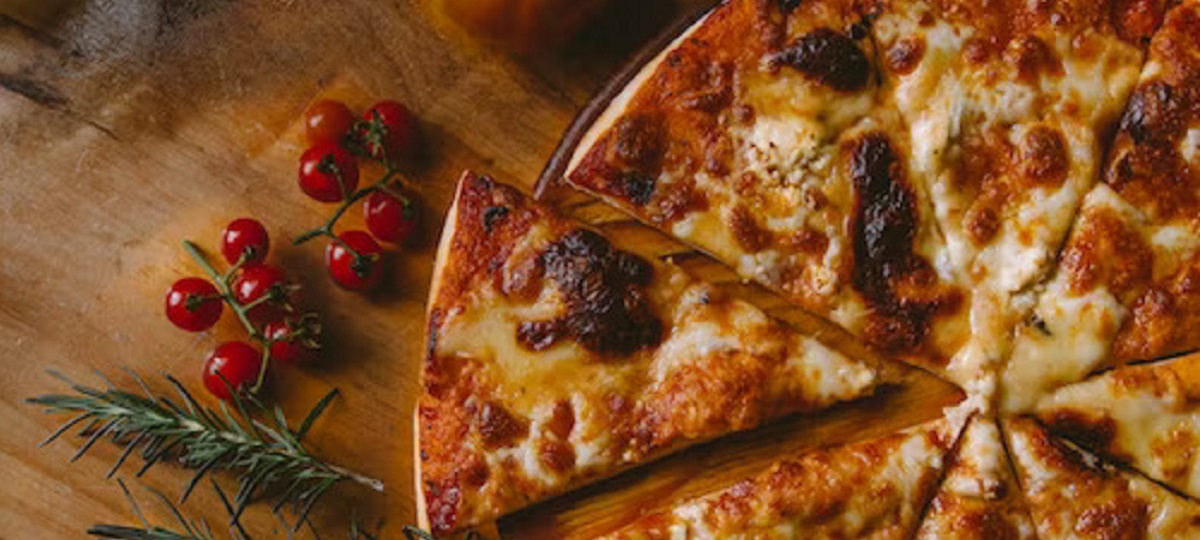Eating pizza with ulcerative colitis can be challenging, as its ingredients may exacerbate symptoms, but individual tolerance varies. The colon and rectum are impacted by the chronic inflammatory bowel illness known as ulcerative colitis (UC). Dietary difficulties are common for people with UC diagnosis since some foods might aggravate the illness and cause symptoms. Because of its many different components, pizza is a favorite food that causes anxiety for many people with UC. This post will examine the connection between eating pizza and ulcerative colitis, providing information and useful advice for those trying to partake in their favorite dish while taking care of their illness.
Understanding Ulcerative Colitis
The hallmark of ulcerative colitis is inflammation of the colon’s lining, which can cause symptoms including weariness, diarrhea, bleeding in the rectal area, and stomach discomfort. A person’s quality of life may be impacted by the variability in symptom severity and the unpredictable nature of flare-ups.
Diet and Ulcerative Colitis
While causes for ulcerative colitis might differ from person to person, diet is a key factor in controlling symptoms. While there isn’t a single strategy that works for everyone, several dietary habits are frequently advised to reduce symptoms and support gut health in general. These can include limiting high-fiber items in a low-residue diet and staying away from particular triggers like dairy, spicy foods, and certain fats.
Pizza Ingredients and Their Impact
The components of a normal pizza include cheese, sauce, dough, and various toppings. Every component may have a distinct effect on people who have ulcerative colitis, therefore it’s important to know how these factors may alter symptoms.
- Crust:
- Traditional pizza crust is often made from refined white flour, which may be easier to digest for some individuals compared to whole wheat or high-fiber alternatives.
- Gluten, found in wheat, can be problematic for those with gluten sensitivity or celiac disease but is generally not a direct concern for most individuals with ulcerative colitis.
- Sauce:
- Tomato-based sauces are common in pizza and may be acidic, potentially causing discomfort for some individuals. Opting for a milder or homemade sauce can be a good alternative.
- Spices and herbs used in pizza sauce may be tolerated differently by individuals. It’s advisable to observe personal triggers and adjust the sauce accordingly.
- Cheese:
- Dairy products can be a trigger for some individuals with UC. Choosing lactose-free or dairy-free cheese alternatives may help mitigate this issue.
- Soft cheeses and those high in fat might be harder to digest, so opting for lower-fat cheese or moderate consumption can be a wise choice.
- Toppings:
- Vegetables and lean proteins can be excellent choices for pizza toppings. However, individuals should be mindful of their specific tolerances to certain foods.
- Processed meats with high fat content, such sausage or pepperoni, may have additives that might cause symptoms.
Tips for Enjoying Pizza with Ulcerative Colitis
- Homemade Pizza:
- Making pizza at home allows for greater control over ingredients. Individuals can tailor the crust, sauce, and toppings to their specific dietary needs.
- Choose Wisely:
- Opt for a thin crust or gluten-free crust if needed. Selecting a mild sauce and avoiding excessive amounts of cheese can also contribute to a more digestible pizza.
- Watch Portion Sizes:
- Moderation is key. Consuming smaller portions and not overloading the pizza with rich toppings can help prevent excessive strain on the digestive system.
- Experiment with Substitutes:
- Look into cheese choices that don’t include dairy and think about using plant-based animal substitutes. With these alternatives, people may still enjoy pizza without experiencing any problems.
- Observe Trigger Foods:
- Maintain a meal journal to pinpoint your own trigger foods. When making or ordering pizza, this can assist people in making knowledgeable decisions.
- Consult with a Dietitian:
- A professional nutritionist can offer advice unique to inflammatory bowel diseases. They can help create a meal plan that meets nutritional needs and reduces the likelihood of triggering symptoms.
Conclusion
Making thoughtful eating decisions is necessary for people with ulcerative colitis, but they do not have to give up on their favorite meals, like pizza. People with UC can still enjoy pizza by being aware of their personal triggers and carefully altering the ingredients. As always, seeking advice from medical experts and nutritionists is essential to guaranteeing that dietary choices complement specific medical demands and treatment regimens. People may manage their health and yet enjoy a great pizza in moderation if they take the proper approach.
